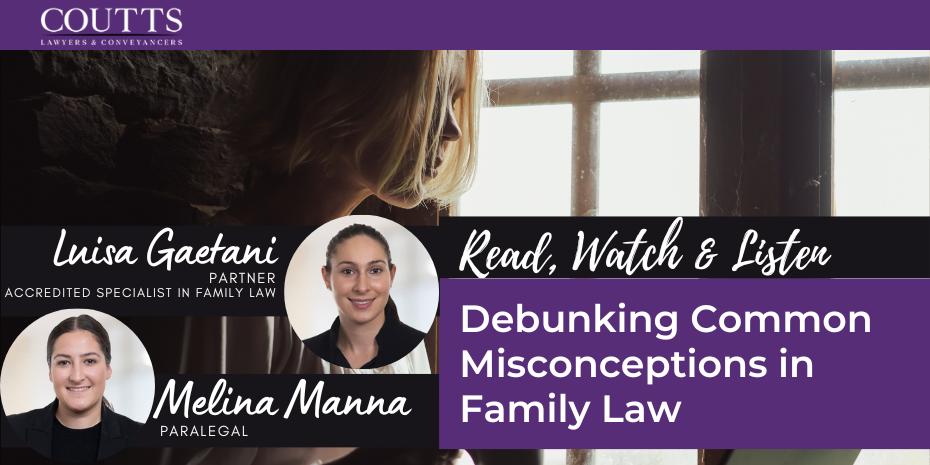KEY TAKE-OUTS
- Within the legal system, a pet is considered the personal property of the owner.
- The purchasing of a pet does not make you the legal owner if the pet is then gifted to another.
- A gift is shown through the intent to give, the delivery to the giftee and the acceptance by the giftee.
- If you would like to continue being the carer of a pet after a relationship has broken down, ensure that you also have ownership of the pet and clearly state that it is not a gift.
- To keep the pet in property settlements, make sure there is a clear intention that the pet is yours and you are able to maintain and care for it.
Pet Custody: Is Your Pet a Gift?
After a breakup many disputes can arise on who owns what, but what about pets? While pets are a part of the family to their owners, in the eyes of the law, they are considered personal property. Following the breakdown of a relationship, the question of ‘who owns the pet?’ is then assessed by the parties for the division of property.
Assessing Ownership
Ownership in most contexts can be assessed by asking the following questions:
- Who bought the item?
- If ownership is registered for example in instances of vehicles and land, who is the registered owner?
- Was the item gifted?
The first two questions are relatively straightforward to answer, however, difficulty arises when answering the third.
What Constitutes a Gift?
An inter vivos gift is a gift that is transferred during someone’s lifetime. To prove a gift has been given, four elements must be demonstrated. These elements are:
- Capacity of the gifter.
- Intent to give.
- Delivery to the giftee.
- Acceptance by the giftee.
While the elements that are listed above must be proven, to ensure it is a valid gift it must be a gift of either money or personal property, which was voluntarily given. Also, there should be nothing given in return for the gift, nor anything gained from the gift. This is very relevant in the context of family law separation but also for disputes in general. When giving someone something, whether it’s personal property or money, it is important to consider whether you will want to re-coup this item/money at a later date. A gift cannot be returned.
But what happens if that “gift” is the family pet?
Deciding what to do with the family pet can cause conflict in property settlements. A national survey in 2019 found most pet owners considered their pet as a family member, and the term “fur baby” was added to the dictionary in 2015.
Under family law, the “best interests’’ principle does not apply to pets as it does to children. Pets are seen as personal property and, as such, will fall under the property settlement of the parties. They may even be allocated a dollar value if the pet is a show animal, or generates some type of income for the owner, for example, if used for breeding, otherwise, it will generally be considered to have little value.
What should I do?
If the parties or the “fur Mum and Dad” are married or in a de facto relationship, the family pet can be dealt with through a property settlement. Under the Family Law Act, Courts only have jurisdiction to deal with property settlement matters if the parties are married or in a de facto relationship for at least 2 years. Parties to a property settlement are encouraged to attempt to resolve issues surrounding pet ownership and come to an agreement before starting legal proceedings.
A few steps can be taken to establish ownership, including:
- Registering the pet in the name of the person who is its primary owner or carer when it is purchased.
- Keeping possession of the pet following separation to establish a clear ownership nexus.
- Ensuring you are able to properly house and care for the pet.
Should the parties be able to come to an agreement, a formal agreement can then be drafted and formalized by consent orders. This order should be filed at least 2 years after the relationship breakdown, or within one year of divorce for married couples.
What if both parties want time with the pet?
If an agreement is reached, it can be drafted to reflect a split in the custody of the pet, who the pet will live with, and what each party will be financially responsible for. However, this section of the agreement would have limited enforceability in the Family Court due to lack of jurisdiction.
While time with each party is not within the jurisdiction of the Family Court, it may order the pet to travel with the child between the parents to comfort the child and therefore travel between households.
What if we can’t reach an agreement?
If the parties are unable to reach an agreement between themselves, the matter will be decided by the Family Court.
The court has wide discretion when making decisions around pets and can take into account any factors they deem fit. However, it may consider factors such as:
- Who is the registered owner of the pet;
- Who has primary possession and care of the pet;
- Who will have suitable accommodation for the pet;
- The extent of the party’s relationship with the pet; and
- Who can continue to maintain and care for the animal, such as ensuring the animal is fed, properly housed and treated by a vet when needed.
What happens if the Family Law Act doesn’t apply?
Ownership disputes are heard in the Local Court of the relevant state and follow the ownership principles outlined above.
Case Study – Downey v Beale [2017]
The wife sought to retain custody of the dog, while the husband claimed that because he had paid for the dog, he was the legal owner and the dog should live with him. The wife claimed that she had chosen the dog, it was an engagement gift, that she was responsible for its upkeep, and that the dog lived with her before and after the couple lived together. Neither party placed a dollar value on the dog, with ownership sought solely on the basis of love and affection for it.
The court found the wife was the owner of the dog because although the husband was technically the owner, the wife was responsible for the care and protection of the dog. The husband’s registration of the dog during the property settlement was considered a contribution to the relationship rather than evidence of ownership.
The Case of Mr Chow and Ms Chang
Earlier this year, in the Victorian Magistrates Court (equivalent to NSW Local Court), a case of a battle for ownership of a dog arose. In this case, Mr Chow had purchased a $4,000 Pomeranian for his now ex-girlfriend, Ms Chang, after she asked him to gift her one for her birthday. The magistrate overseeing the case found Ms Chang to have ownership of the Pomeranian as Mr Chow gave it as a gift.
Mr Chow claimed that since he paid for the dog that he was the legal owner and that Ms Chang had only the “right to use and enjoy the dog”. However, the council, pedigree, and microchip registration documentation named Ms Chang as the owner of the pet. Ms Chang had also reduced her working hours from full-time to part-time to become the primary carer of the Pomeranian.
Text messages between the two parties found that Mr Chow did not originally want a pet and that he had an intent to give the dog to Ms Chang as a gift for her birthday. There was a delivery to the giftee when Mr Chow gave the dog to Ms Chang, and finally, there was an acceptance by the giftee through the actions she had taken to care and take ownership of the dog shown through the registration documents.
For further information please don’t hesitate to contact:
info@couttslegal.com.au
1300 268 887
This blog is merely general and non-specific information on the subject matter and is not and should not be considered or relied on as legal advice. Coutts is not responsible for any cost, expense, loss or liability whatsoever to this blog, including all or any reliance on this blog or use or application of this blog by you.



